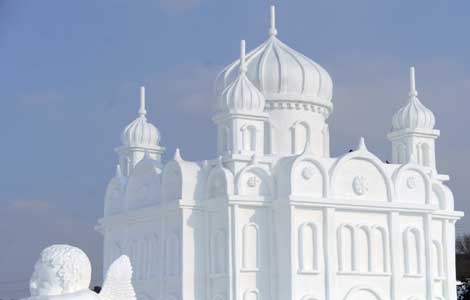Protests cannot end Thai deadlock, observers say
Updated: 2014-01-14 01:47
By Pu Zhendong (China Daily)
|
||||||||
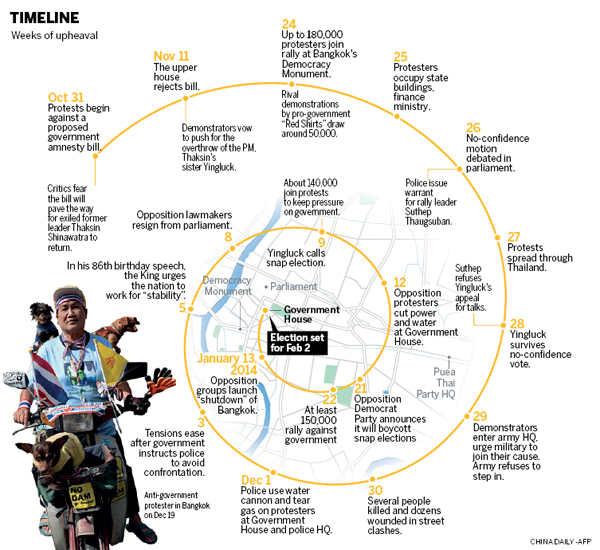
The political impasse in Thailand cannot be resolved through demonstrations, which will only hurt the economy and people’s livelihood, Chinese observers said on Monday.
Thousands of anti-government protesters began a blockade at major intersections in Bangkok on Monday, seeking to paralyze Thailand’s capital and force caretaker Prime Minister Yingluck Shinawatra to resign. The shutdown is expected to last five to 20 days.
Observers said that the unrest will greatly damage the economy, foreign trade and cultural exchanges.
Zhou Fangye, an expert on Thai studies at the Chinese Academy of Social Sciences, said political instability hurts the tourism sector, Thailand’s pillar industry.
"Despite the fact that Sino-Thai relations will stay intact, we cannot rule out the possibility that certain projects will be affected by the disturbance," Zhou said.
Jia Duqiang, another Southeast Asian studies expert at the Chinese Academy of Social Sciences, said the Chinese government has been calling for peace and stability in Thailand, "because it proves difficult for collaborations with Bangkok to go on when the political situation is undergoing major changes".
Analysts said that the massive protest by the opposition aims to create barriers for the coming election, in which Yingluck is very likely to take over power again.
Zhuang Guotu, director of the Southeast Asian Center at Xiamen University, said the blockade also seeks to impair the caretaker government.
"The possible paralysis of government institutions, the aggravating social chaos and even bloodshed may provide an excuse for the military to intervene," he said.
Zhou said the fundamental cause of the political chaos lies in the contradictory ideas each interest group holds on the country’s development model.
There are three major political forces in Thailand. The ruling Puea Thai Party, headed by Yingluck and backed by her exiled brother, former prime minister Thaksin Shinawatra, has been supported by farmers and urban grassroots, characterized by their red shirts. They make up roughly 70 percent of the population.
The anti-government People’s Democratic Reform Committee, led by Suthep Thaugsuban, represents the interests of the middle class, intellectuals and royal establishments, whose supporters wear yellow shirts in contrast.
The king and the military, the third force, often act as a catalyst during the reshuffling of governments.
Zhuang said the unrest may lead to two possible scenarios.
"One is that Yingluck refuses to resign and tries to regain power through an election. The opposition will then seek to escalate protests resulting in social chaos. The military will thus intervene with a coup and take over the government," he said.
"Another scenario is that Yingluck declares that she is not running for election and the Thaksin group picks a new candidate instead. This will satisfy the opposition’s demand of expelling Yingluck."
Zhuang said given the current circumstances, the second scenario is more likely.
Zhou said that in the long run, the opposing sides will have to sit down and negotiate the country’s development strategy, political landscape and power distribution, and facilitate a framework program.
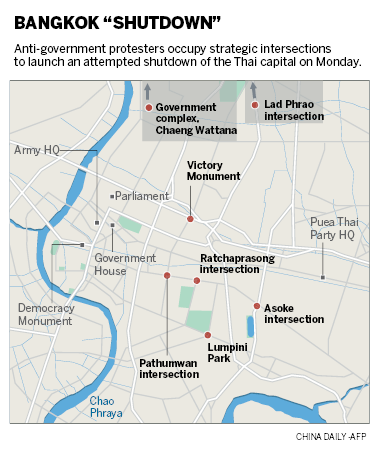
- Thai gov't set to discuss proposed election delay
- Thai protesters move to shut down Bangkok
- Thai soldiers deployed to protect protesters
- Thai protest leader says 'no' to civil war
- Seven injured in Thai protest shooting
- No blackout on Jan 13: Thai minister
- Thai anti-govt march a prelude to Jan 13 'shutdown'

 Cristiano Ronaldo wins FIFA best player award
Cristiano Ronaldo wins FIFA best player award
 Xuelong carries on mission after breaking from floes
Xuelong carries on mission after breaking from floes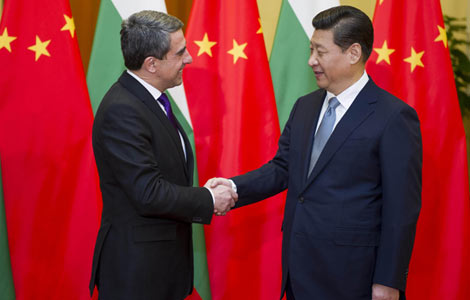
 Beijing and Sofia vow new initiatives
Beijing and Sofia vow new initiatives
 71st Golden Globe Awards
71st Golden Globe Awards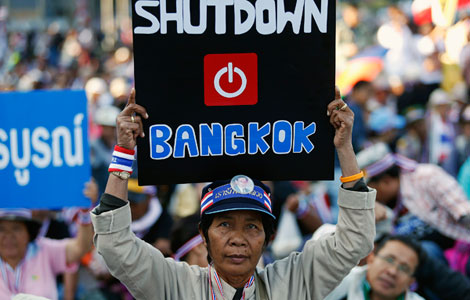
 Bangkok unrest hurts major projects and tourism industry
Bangkok unrest hurts major projects and tourism industry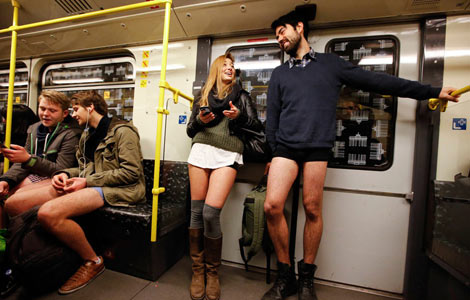
 No pant for cold subway ride
No pant for cold subway ride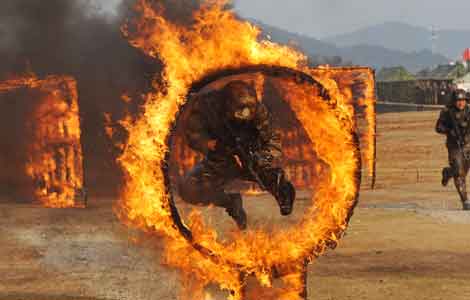
 Tough army training turns boys into men
Tough army training turns boys into men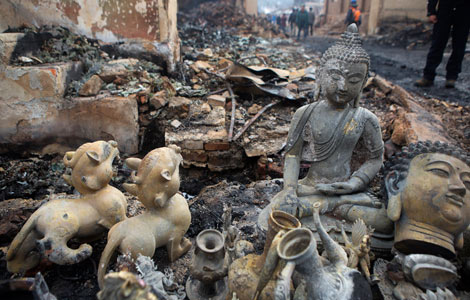
 Blaze prompts concern for ancient buildings
Blaze prompts concern for ancient buildings
Most Viewed
Editor's Picks

|

|

|
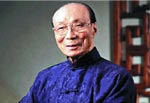
|

|

|
Today's Top News
Newspapers must change or die
Abe’s brother to explain shrine visit to US
Protests cannot end Thai deadlock, observers say
Mercy killing still a hot button issue, but is it changing?
China builds army 'with peace in mind'
UN plea made on war victims
Li: China's tech innovation a priority
Less school is better for finding love
US Weekly

|

|


